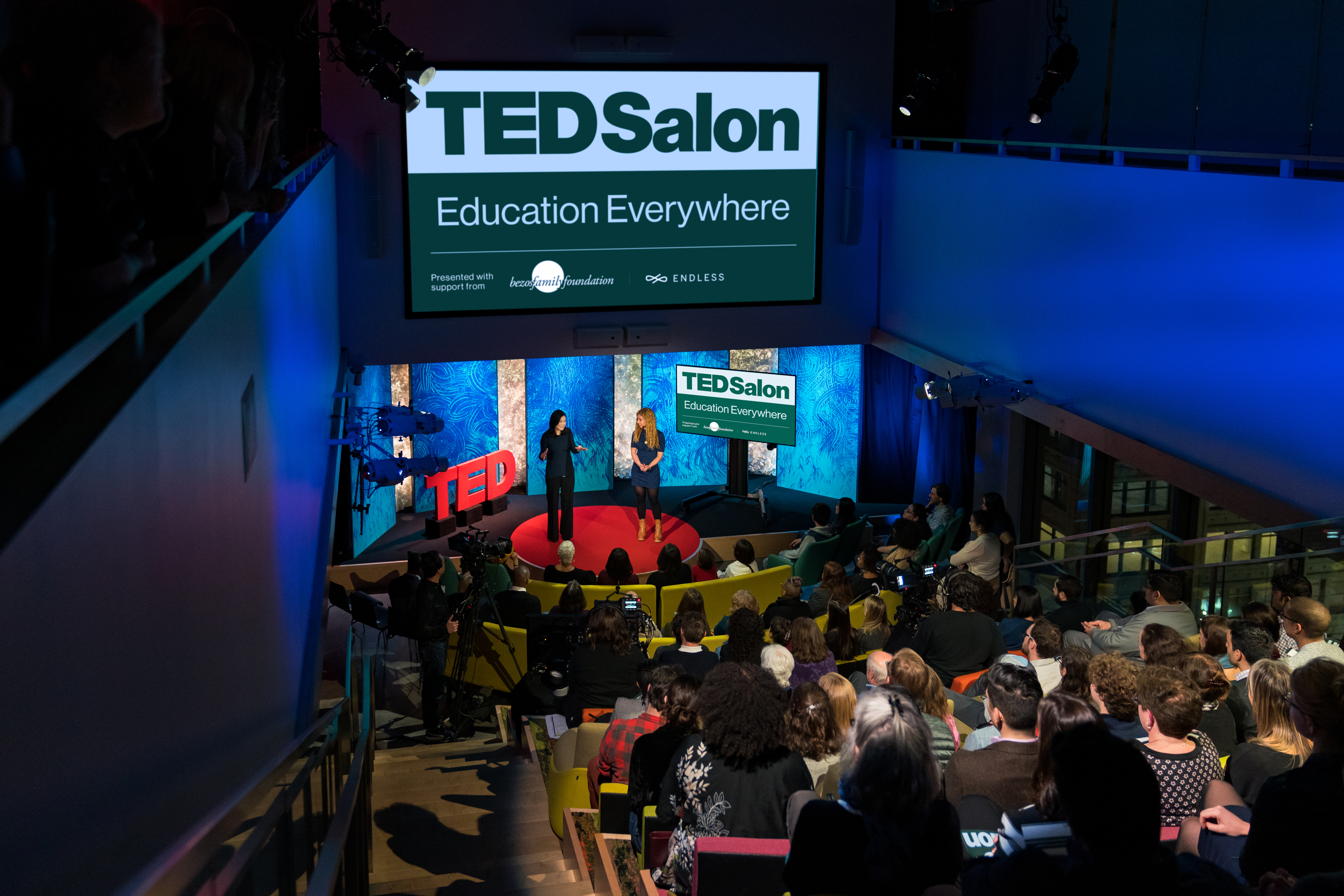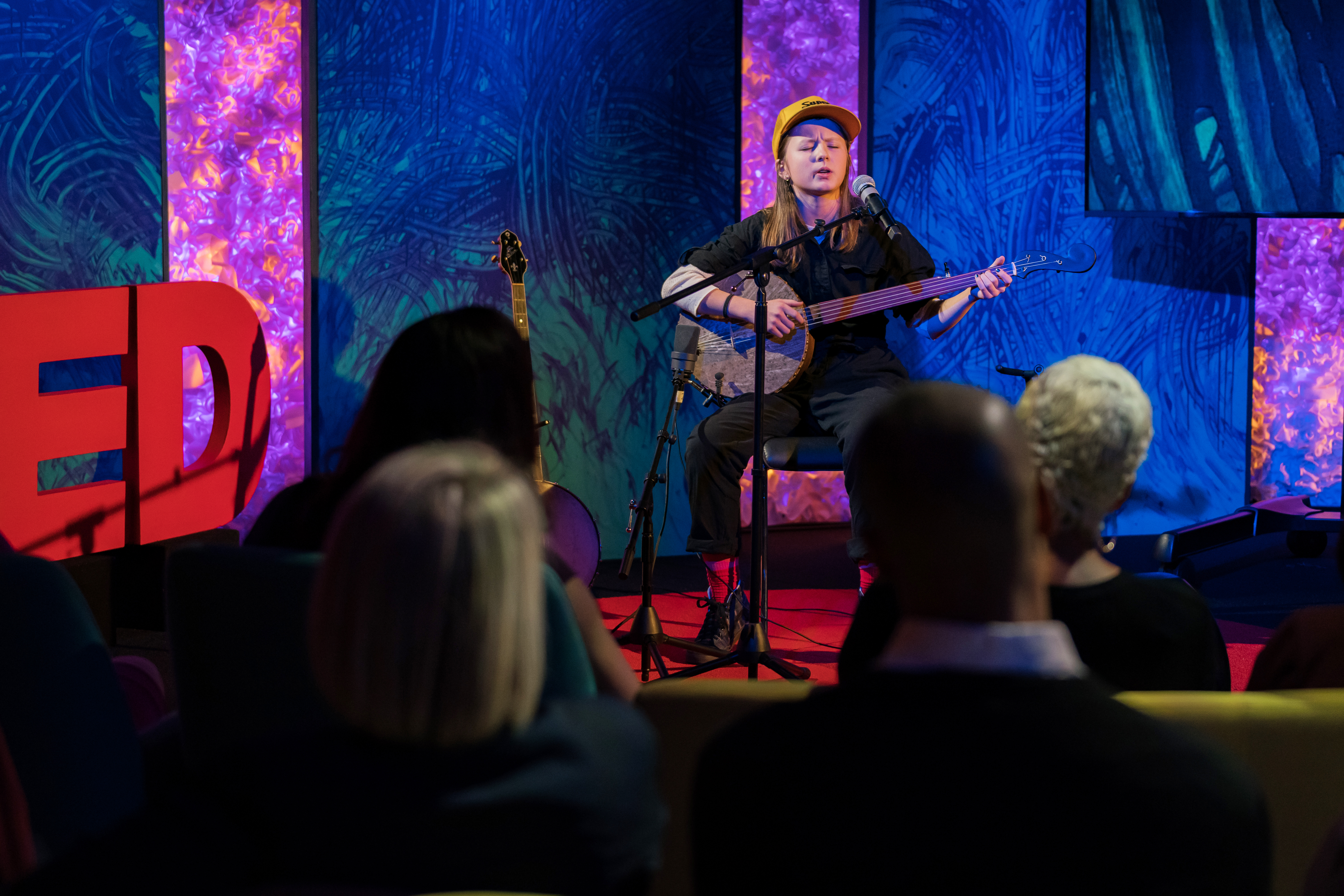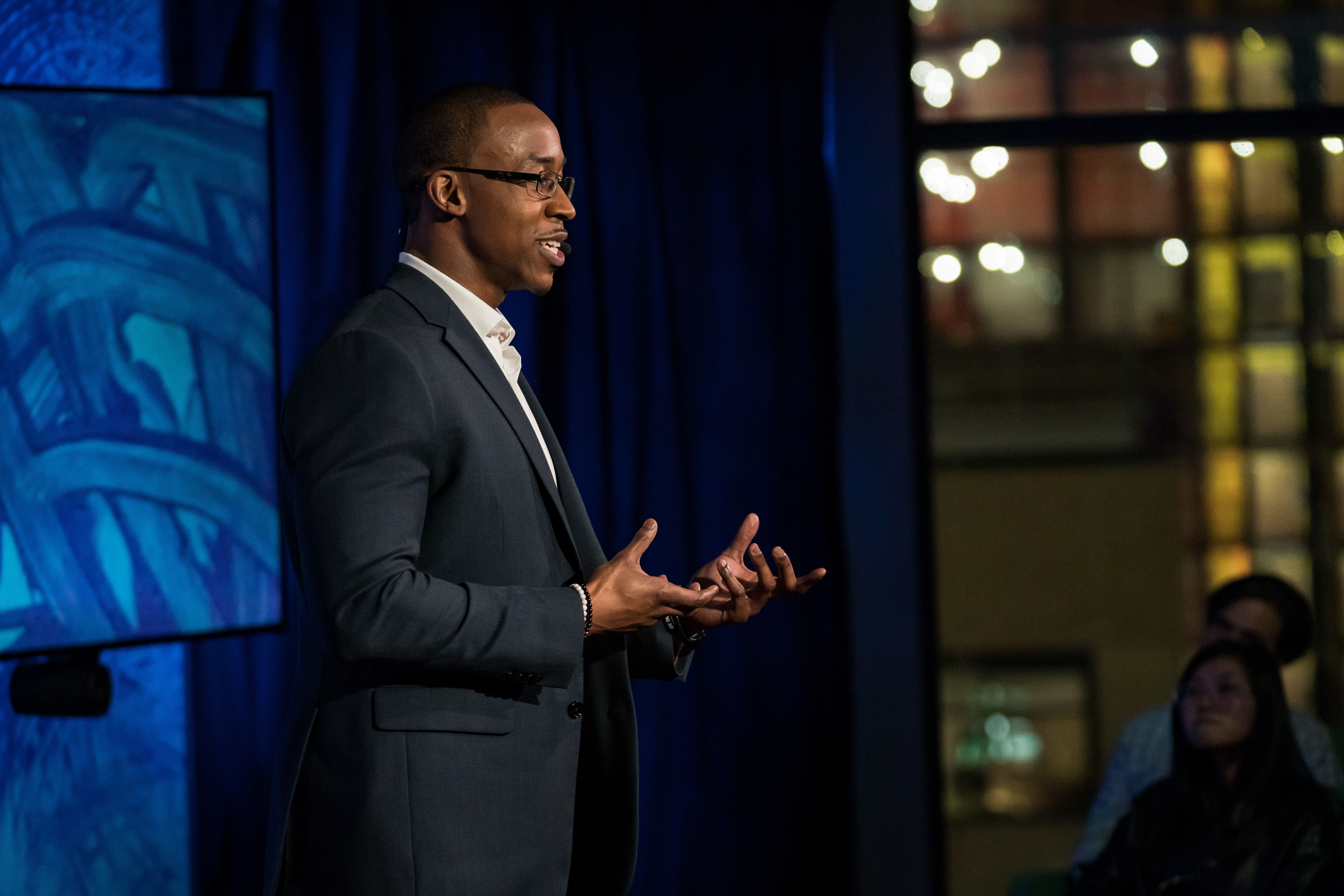
TED-Ed’s Stephanie Lo (left) and TED’s own Cloe Shasha co-host the salon Education Everywhere, on January 24, 2019, at the TED World Theater in New York City. (Photo: Dian Lofton / TED)
The event: TED Salon: Education Everywhere, curated by Cloe Shasha, TED’s director of speaker development; Stephanie Lo, director of programs for TED-Ed; and Logan Smalley, director of TED-Ed
The partner: Bezos Family Foundation and ENDLESS
When and where: Thursday, January 24, 2019, at the TED World Theater in New York City
Music: Nora Brown fingerpicking the banjo
The big idea: We’re relying on educators to teach more skills than ever before — for a future we can’t quite predict.
Awesome animations: Courtesy of TED-Ed, whose videos are watched by more than two million learners around the world every day
New idea (to us anyway): Poverty is associated with a smaller cortical surface of the brain.
Good to be reminded: Education doesn’t just happen in the classroom. It happens online, in our businesses, our social systems and beyond.

Nora Brown, who picked up the ukulele at age six, brings her old-time banjo sound to the TED stage. (Photo: Dian Lofton / TED)
The talks in brief:
Kimberly Noble, a neuroscientist and director of the Neurocognition, Early Experience and Development Lab at Columbia University
- Big idea: We’ve learned that poverty has a measurable effect on the cortical surface of the brain, an area associated with intelligence. What could we do about that?
- How: Experience can change children’s brains, and the brain is very sensitive to experience in early childhood. Noble’s lab wants to know if giving impoverished families more money might change brain function in their preschool kids.
- Quote of the talk: “The brain is not destiny, and if a child’s brain can be changed, then anything is possible.”
Olympia Della Flora, associate superintendent for school development for Stamford Public Schools in Connecticut, and the former principal at Ohio Avenue Elementary School in Columbus, Ohio
- Big idea: Healthy emotional hygiene means higher academic scores and happier kids.
- How: With help from local colleges and experts, the teachers at Ohio Avenue Elementary learned new ways to improve kids’ behavior (which in turn helped with learning). Rather than just reacting to kids when they acted out, teachers built healthy coping strategies into the day — simple things like stopping for brain breaks, singing songs and even doing yoga poses — to help kids navigate their emotions in and out of the classroom.
- Quote of the talk: “Small changes make huge differences, and it’s possible to start right now. You don’t need bigger budgets or grand, strategic plans. You simply need smarter ways to think about using what you have, where you have it.”
Marcos Silva, a TED-Ed Innovative Educator and public school teacher in McAllen, Texas; and Ana Rodriguez, a student who commutes three hours every day to school from Mexico
- Big idea: Understanding what’s going on with students outside of school is important, too.
- How: Silva grew up bringing the things he learned at school about American culture and the English language back to his parents, who were immigrants from Mexico. Now a teacher, he’s helping students like Ana Rodriquez to explore their culture, community and identity.
- Quote of the talk: “Good grades are important, but it’s also important to feel confident and empowered.”
Joel Levin, a technology teacher and the cofounder of MinecraftEdu
- Big idea: Educators can use games to teach any subject — and actually get kids excited to be in school.
- How: Levin is a big fan of Minecraft, the game that lets players build digital worlds out of blocks with near-endless variety. In the classroom, Minecraft and similar games can be used to spark creativity, celebrate ingenuity and get kids to debate complex topics like government, poverty and power.
- Quote of the talk: “One of my daughters even learned to spell because she wanted to communicate within the game. She spelled ‘home.'”

Jarrell E. Daniels offers a new vision for the criminal justice system centered on education and growth. (Photo: Dian Lofton / TED)
Jarrell E. Daniels, criminal justice activist and Columbia University Justice-In-Education Scholar
- Big idea: Collaborative education can help us create more justice.
- How: A few weeks before his release from state prison, Daniels took a unique course called Inside Criminal Justice, where he learned in a classroom alongside prosecutors and police officers, people he couldn’t imagine having anything in common with. In class, Daniels connected with and told his story to those in power — and has since found a way to make an impact on the criminal justice system through the power of conversation.
- Quote of the talk: “It is through education that we will arrive at a truth that is inclusive and unites us all in a pursuit of justice.”
Liz Kleinrock, third-grade teacher and diversity coordinator at a charter school in Los Angeles
- Big idea: It’s not easy to talk with kids about taboo subjects like race and equity, but having these conversations early prevents bigger problems in the future.
- How: Like teaching students to read, speaking about tough topics requires breaking down concepts and words until they make sense. It doesn’t mean starting with an incredibly complex idea, like why mass incarceration exists — it means starting with the basics, like what’s fair and what isn’t. It requires practice, doing it every day until it’s easier to do.
- Quote of the talk: “Teaching kids about equity is not about teaching them what to think. It’s about giving them the tools, strategies and opportunities to practice how to think.”